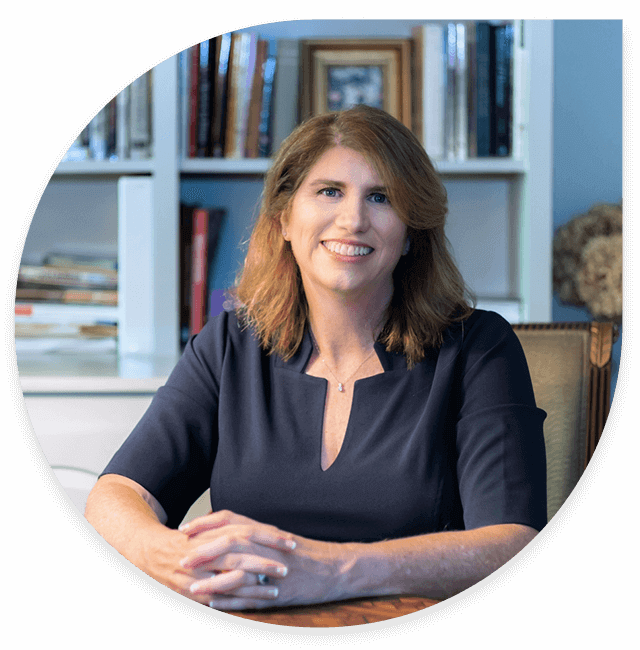
Posted On: November 8, 2021
Family health history is one of the most important but overlooked aspects of maintaining good health. It is the single most informative data available to help you understand your risk of developing hundreds of conditions. It serves as the foundation for many preventive guidelines pointing individuals towards higher intensity screening strategies than those that apply to the general population. For example, most people know that colon cancer screening (with any of the available methods) is recommended starting at age 45. However, those who have a first-degree relative (parent, sibling, or child) or two second-degree relatives (grandparent, aunt/uncle, niece/nephew) with colon cancer or pre-cancerous colon polyps should start screening sooner at age 40, or ten years before those conditions were identified in their relative. That seems straightforward, and your doctor may be on top of this one – so why do I say it is overlooked? There are several quite complex reasons.
First, you, my dear readers, do not usually know your family history at the level of detail that is necessary to assess your risk. For example, how many of you know whether any of your relatives had pre-cancerous colon polyps? It’s a huge cultural barrier that is slowly changing, but many families do not share their personal health information. It happens for a variety of reasons including a desire for privacy and not understanding how much their health conditions affect their family’s overall risk of disease. Note that when I say family, I am limiting this to blood relatives, since they are your biologic relations.
Second, understanding health information is complicated. Our field is full of jargon and we, as doctors, often fail to ensure that our patients truly understand their diagnoses. A fitting example of this (sticking with our theme of colon cancer) is colon polyps. My patients tell me – “the doc said everything was fine, no cancer, and I’m repeating my colonoscopy in 5 years.” There is a tip off in that sentence, which is the repeat interval of 5 years. If it were truly normal the repeat test would be in 10 years, so they must have found some pre-cancerous polyps. Because polyps are not cancer, “I don’t have cancer” is what many patients hear as a takeaway from the conversation. This is just the tip of the iceberg though.
Some quite common points of confusion are:
Third, we have an increasing number and complexity of risk-based guidelines. It is often too much for your primary care physician to be able to handle collecting a large amount of family history data and running all the different risk assessments in the fleeting time they have with you in clinic. Hereditary breast and ovarian cancer recommendations alone are 80 pages long and that is just one guideline. Many physicians will focus on what they see as the most common risks, such as early heart attacks or colon cancer, and defer others due to time demands.
Which brings me to some key recommendations for you (and you may be thinking – it’s about time she got to the point!).
Hopefully, this will pique your interest and get you started on a journey towards better health. There are many more detailed resources available if you want to dig in deeper!
Dr. West is pleased to offer an extensive 90-minute health history review for each of her new practice members, including an in-depth discussion of family history. To learn more about becoming a member contact us here or simply call 571-999-9378.
—————————————–
Dr. Lori A. Orlando, MD MHS MMCI is a Professor of Medicine, health services researcher, and Director of the Precision Medicine Program in the Center for Applied Genomics and Precision Medicine at Duke University. She received her MD from Tulane University in 1998, MHS from Duke in 2004, and MMCI from Duke in 2019. Her current research program focuses upon using technology to overcome barriers to family health history-based risk assessment and using high quality family health histories to guide clinical care.

April is National Oral Health Month! Did you know? A healthy smile is more than just a cosmetic asset—it's a cornerstone of overall wellness! 🦷✨ From reducing the risk of heart disease to enhancing mental health, oral health plays a pivotal role in our wellness journey. Let's prioritize those dental check-ups and daily oral care routines for a happier, healthier you!

Multiple sclerosis (MS) is a chronic autoimmune disease of the central nervous system. MS is unpredictable. Some people may be only mildly affected. Others may lose the ability to see, write, speak, or walk. It is important to note that no two individuals experience the same symptoms and these symptoms can also change or fluctuate over time.

With the days getting longer and the first signs of warmth returning to the air, we know spring is coming. Spring is typically associated with new beginnings and fresh starts. It’s the perfect time to tidy up, physically and mentally. Spring cleaning isn’t just about sprucing up your living space, it’s also about rejuvenating your body & mind. Check out the blog linked below for tips on how to declutter your mind and space! https://www.mymsmedicine.com/blog/revitalize-your-mind-and-body-the-ultimate-guide-to-spring-cleaning
Seeking more information?
Ready to schedule a meet-and-greet, health consult, or COVID-19 test?
Complete the form below and we will contact you shortly.
